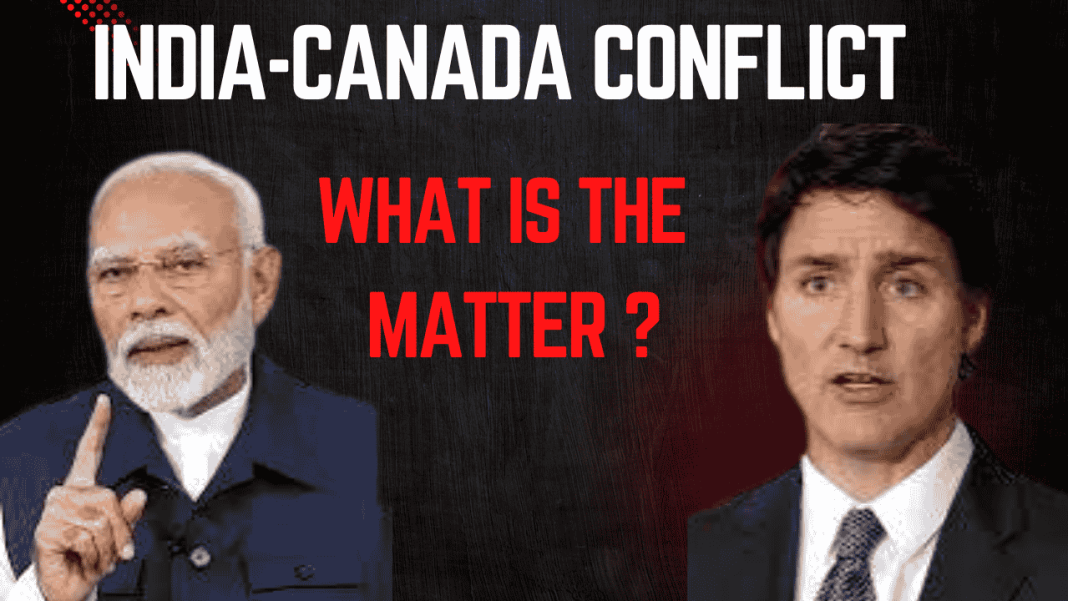Digital News Desk:
The diplomatic tensions between India and Canada have escalated into a significant international issue in 2024, with wide-reaching implications for bilateral relations, international diplomacy, and the Indian diaspora in Canada. The current discord stems from allegations made by Canadian Prime Minister Justin Trudeau that India was involved in the killing of Hardeep Singh Nijjar, a pro-Khalistan activist and Canadian citizen. This has led to a rapid deterioration in relations, with both countries expelling diplomats and taking steps that indicate a deepening rift.
Background: The Nijjar Assassination and Trudeau’s Allegations
The immediate cause of the diplomatic crisis dates back to June 2023, when Hardeep Singh Nijjar, a prominent pro-Khalistan figure, was killed in Surrey, British Columbia. Nijjar, who had long been a controversial figure, was a vocal advocate for the Khalistan movement, which seeks the establishment of a separate Sikh state in India’s Punjab region. India has consistently viewed this movement as a threat to its sovereignty and has labeled Nijjar a terrorist due to his alleged involvement in violent activities related to separatism.
The situation took a dramatic turn in September 2024, when Prime Minister Trudeau publicly accused India of having links to Nijjar’s assassination. Trudeau asserted that Canadian intelligence agencies had credible evidence suggesting the involvement of Indian operatives. This marked a significant escalation in tone and rhetoric from Canada, which led to widespread media coverage and placed immense diplomatic pressure on both governments to respond.
India’s Response and Diplomatic Fallout
India vehemently denied the allegations, dismissing them as “absurd” and politically motivated. The Indian government criticized the Canadian authorities for harboring individuals it views as terrorists and for allowing anti-India activities to flourish on Canadian soil. India’s Ministry of External Affairs quickly condemned Trudeau’s statement, calling it an attempt to shift the blame for domestic political challenges onto international relations.
In retaliation, India took the significant step of expelling a senior Canadian diplomat, which Canada reciprocated by expelling an Indian diplomat from its embassy in Ottawa. The diplomatic tit-for-tat did not end there. India also downgraded its diplomatic presence in Canada, issuing travel advisories for Indian citizens living in or traveling to Canada. Furthermore, India suspended visa services for Canadian citizens, further heightening tensions between the two nations.

Historical Context of India-Canada Relations
While the assassination of Nijjar was the immediate spark, tensions between India and Canada have been brewing for some time. Canada has one of the largest Sikh diasporas in the world, with many individuals supporting the Khalistan movement, a highly sensitive issue for the Indian government. Pro-Khalistan activities, including protests and referendums organized by groups in Canada, have long been a source of friction between the two countries.
The Trudeau government, in particular, has been accused by Indian officials of being soft on separatist elements within its borders, partly due to the political influence of the Sikh community in Canadian elections. Trudeau’s earlier visit to India in 2018 was also overshadowed by this issue, as he was perceived as being too close to pro-Khalistan figures.
International Ramifications
The fallout from this diplomatic crisis extends beyond bilateral ties and has drawn international attention. The U.S., U.K., and other Western nations have expressed concern over the allegations but stopped short of taking sides, emphasizing the need for a transparent investigation. Canada’s NATO allies, while supportive of its call for a probe, have also maintained their strategic relationships with India, given its growing importance in global geopolitics, especially as a counterbalance to China.
For India, this incident raises questions about its relations with the West. India has been fostering closer ties with Western nations, particularly in the context of its role in the Indo-Pacific region, its membership in the Quad alliance (alongside the U.S., Australia, and Japan), and its importance in global trade and supply chains. The diplomatic row with Canada is unlikely to derail these relationships, but it may complicate India’s efforts to project itself as a responsible global power that adheres to international norms.
Domestic Impacts in Canada and India
In Canada, the political fallout has been significant. Trudeau’s government has faced criticism from both the opposition and members of his own Liberal Party for escalating tensions with a key international partner. The timing is also politically sensitive, as Trudeau is grappling with declining approval ratings and economic challenges at home. His handling of the situation with India has become a point of contention, with critics arguing that he may have jeopardized Canada’s economic and trade relations with one of the world’s fastest-growing economies.
For India, the issue has reignited debates over how it manages its relationship with the Sikh diaspora, particularly in countries where pro-Khalistan sentiments have a political foothold. The Indian government has sought to balance its condemnation of separatist activities with maintaining positive relations with countries hosting large Indian populations. However, the intensity of this diplomatic spat with Canada has highlighted the challenges India faces in dealing with diaspora politics.
Conclusion
The diplomatic tensions between India and Canada are a complex issue, deeply intertwined with historical grievances, diaspora politics, and global diplomatic dynamics. While the immediate cause of the rift—the assassination of Hardeep Singh Nijjar—has been a flashpoint, the underlying issues are likely to persist. The longer-term consequences for India-Canada relations will depend on how both governments navigate this highly sensitive period. However, it is clear that without a diplomatic resolution, the tensions will continue to affect not only bilateral relations but also their international standing.
You May Also Read: President Murmu is on a three-nation tour of Africa, from October 13 to 19, 2024








